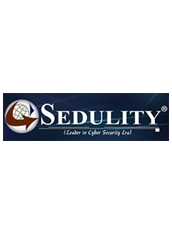Publication & AuthorShip Policy
Publication
It is important to ensure that the results of research are published as, in order for research to be of a benefit to society, the outcomes and results need to be known and accessible by others. This includes the ability of other researchers to use these results to further current knowledge. In order for other researchers and society to be able to rely on and trust the results of research, it is essential that publications are accurate and honest with regards to the outcome/s, the methods used and who conducted the research.
Ethics in Publishing
Cyber Times International Journal of Technology & Management (CTIJTM), is an organization that is committed to meet high standards of ethical behavior at all phases of the publication process. We follow and adhere to any policies regarding ethical standards that are required to maintain optimum level of quality. Cyber Times International Journal of Technology & Management (CTIJTM) uses its online manuscript submission system, which helps the authors to submit, and track their paper online. All the submitted papers/ articles are screened properly for any plagiarized content. The guidance provided to Journal Editors and Society which helps to manage the repercussions potentially arising from publishing work which could be in breach with the codes of conduct. Double blind peer-review process adhered to ensure that each paper meets established academic standards through rigorous assessment by domain experts in any particular field. Each paper goes to different reviewers who are experts in their specific domain, in order to evaluate the aptness of papers for publication. Reviewers send feedbacks, suggestions, quality report to authors if any correctness is required in their papers.
Authorship
Authorship on publications can be a sensitive issue and one that can often raise disputes amongst research teams. It is strongly recommended therefore that researchers discuss and agree authorship as early as possible so as to avoid later disputes. It is also worth noting that the balance of contribution can alter over time, and so if this occurs researchers may find it beneficial to revisit authorship prior to publication.
Multi-disciplinary research presents more challenges for collaborations with regards to authorship as the accepted ‘norms’ vary across disciplines; from listing only those who have contributed to the writing of the papers itself, to a list of hundreds.
Due to the sensitivities authorship can raise, it is understandable that some may be hesitant to raise the question of authorship at an early stage. However given the variances and the importance of accuracy not only for the publication but in recognizing contributions, it is a matter that should be openly addressed early on in the research. Incorrect authorship goes beyond raising disputes amongst research teams to matters of research integrity and good research conduct.
The CTIJTM Policy and Guidelines on the Governance of Good Research Conduct states that unacceptable research conduct includes ‘Misrepresentation of involvement, such as inappropriate claims to authorship and/or attribution of work where there has been no significant contribution, or the denial of authorship where an author has made a significant contribution’. Moreover, the procedure for investigating allegations of misconduct in academic research includes ghost writing within the description of misconduct. It defines ghost writing as ‘when someone has made substantial contributions to writing a manuscript and this role is not mentioned in the manuscript itself. Ghost-writers generally work on behalf of companies or agents acting for those companies, with a commercial interest in the topic’.
Clear Guidelines on submission of the work are as follows:
- The work has not been published before (except in the form of an abstract or as part of a published lecture, review or thesis)
- The work is not under consideration elsewhere
- Copyright has not been breached in seeking its publication
- The publication has been approved by all co-authors and responsible authorities at the institute or organization where the work has been carried out
For More Details please visit: Author Guidelines












